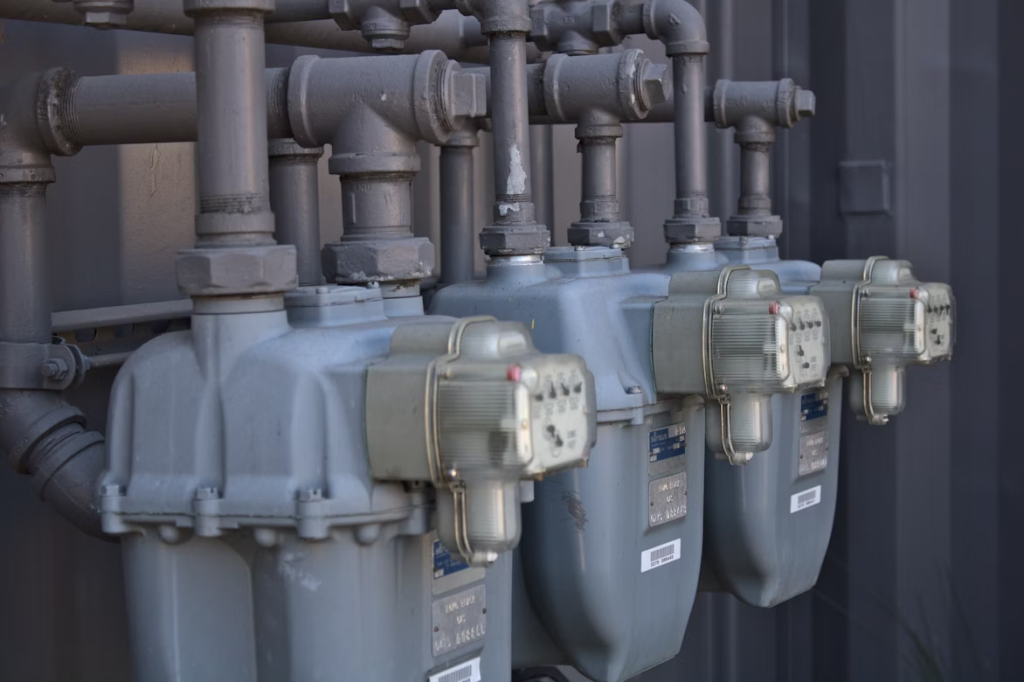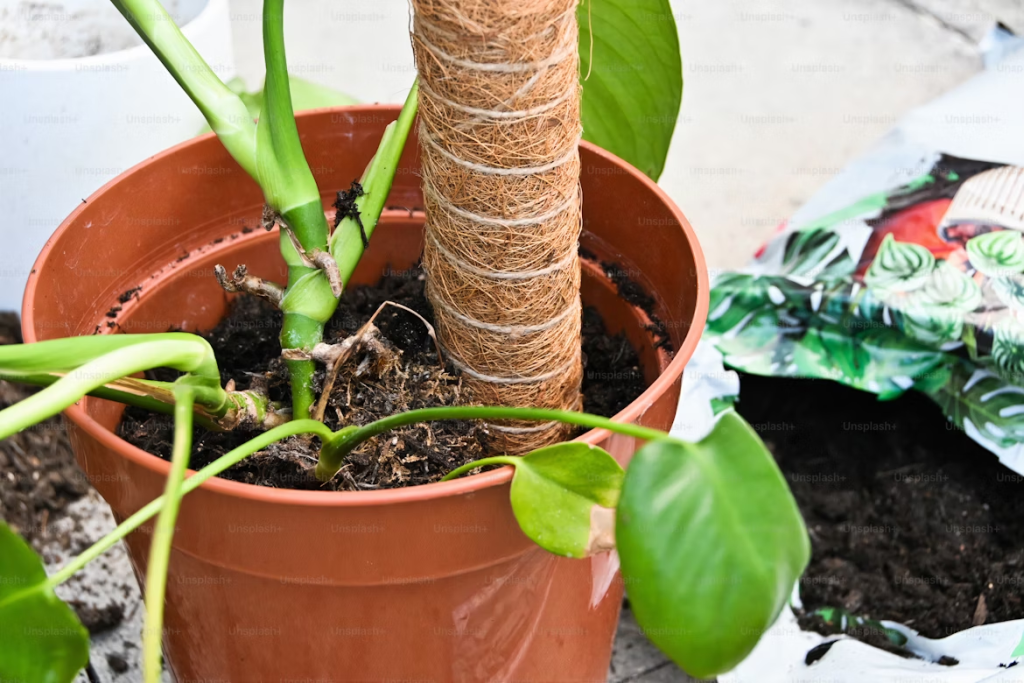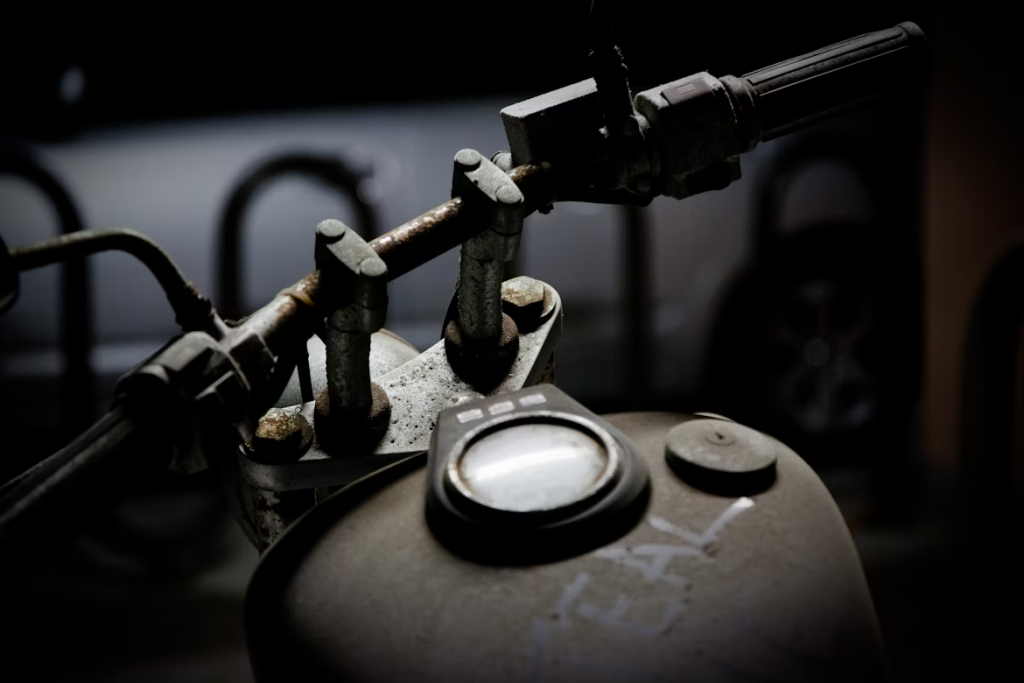

Could you have a gas meter leak? You often smell something rotten near your gas meter and hear a hissing sound. Plus, you realise that your latest gas bill has spiked.
You can’t ignore this. A small leak might just cause some smells, but it could also lead to a fire, carbon monoxide poisoning, or worse. You need to act immediately. But how?
That’s where this article comes in. Here, we would like to guide you through the critical signs and the key first steps to stay safe. Let’s get started!
A gas meter is a device that measures how much natural gas or propane you use at home. It helps the gas company know your usage, send you the right bill, and monitor safe consumption levels.
Gas meters measure consumption under standard conditions and display the amount in units like cubic feet or cubic meters.
But keep in mind that modern gas meters do more than just measure your usage. They use certain maths to ensure your readings are correct despite gas pressure and temperature changes.
It helps you monitor your energy consumption patterns and identify problems, such as unusual spikes that could indicate a leak.

Gas meters themselves can be installed in different locations, depending on the type of house and local regulations. For most single-family homes, you’ll find the meter outside: by the front door, on the side, or in a wall box.
Yes, the gas meter is located on your property, but who takes care of it? The gas company owns the meter and is responsible for its upkeep.
But what should you do if your gas meter leaks? You need to look for warning signs to verify the issue before deciding what to do next to stay safe.
Here are some critical warnings to perform a gas leak detection on your gas meter:
If you smell a strong rotten egg odour, there might be a gas leak. Gas companies add this odour to the gas to help you detect if there is a problem.
You can try walking around your gas meter and the nearby areas. The strongest odour is usually where the leak is. But gas can move with the air, so the odour might go away even if the leak is still there.
If you have a cold, allergies, or health problems, you might not notice the odour as easily. So, stay alert for other signs of a gas leak.
Gas meters make small, quiet sounds when they are working. But if you hear a steady hissing sound, it might be a leak. It happens when gas escapes through a crack or hole. The louder the hissing, the bigger the leak.
It’s recommended to listen carefully when the weather is calm. Wind can hide the sounds you’re trying to hear. But if you hear a hissing that seems unusual, don’t try to find the leak on your own.
Gas leaks underground can harm plants because they remove the oxygen in the soil that roots need to grow. So, you need to look at the grass, flowers, and bushes near your gas meter.

Are there patches that are dead or dying without a clear reason? Also, you might take a look at straight lines, groups of dead plants, or areas where pipes are buried underground.
If you notice a sudden increase in gas usage without changing your habits, it likely means gas is escaping somewhere. To find out, compare your current bills to previous months and the same time last year.
If your routines haven’t changed and the weather is normal, but your bill suddenly spikes, it’s a sign that there might be a leak. Keep in mind that even small leaks can add up and cost you more over time.
Do you see one or more of those warnings above? It means there might be a gas leak, and you need to do the right things to stay safe:
Before you do anything, understand how serious your situation is. If you smell rotten eggs or hear loud hissing from your meter, it’s an emergency. That means gas is leaking from the metre, and it’s dangerous.
If you smell a faint gas odour that comes and goes, or see small dead patches of grass near your meter, there might be a leak too. But stay calm and check again to see if it needs urgent attention.
So, the big difference is how strong and how fast it is. Strong smells, loud sounds, and visible damage mean emergency action.
Once you realise the situation is serious, the first thing to do is to get yourself and everyone else out of the area. You need to do this when you smell strong gas or hear loud hissing sounds.
So, you can treat this like a fire emergency. Don’t waste time gathering belongings or turning off appliances. Every second matters. Gas leaks can cause explosions or fires with just a small spark.
You should walk quickly to get at least 300 feet away from your house and the gas meter. There, you can start to look for help or take further action, but first, just evacuate yourself.
If you panic, you might call for help without moving to a safe place. This could make things worse. So, always wait until you’re far enough away from danger before doing so.
Who should you call first? It depends on how serious the leak is. If you think it’s an emergency, call 911 right away. Tell them it’s a gas leak and give your exact address.
For less serious problems like faint smells or dead grass around your meter, you can call your gas company. They’ll decide if it needs an emergency response or can wait for regular business hours.
Even a small gas leak can be risky. While waiting for the gas plumber to arrive, it’s best to avoid electrical switches and outlets.
Garage door openers and doorbells can sometimes produce small sparks when used. They might seem harmless, but those sparks can ignite any gas that might be in the air.

Also, avoid anything with flames or heat. Don’t light matches, candles, or lighters. Don’t start your car if it’s parked close to where you smell gas.
You might want to run back inside to get something important, like medicine, your phone charger, or your pet. But it’s better not to.
You should wait until the gas plumber or fire department says it’s safe to come back. Even if you can’t smell gas or everything looks okay, dangerous gas might still be in the air, and you can’t see it.
The smartest thing you can do is keep up with regular maintenance and checkups. This helps prevent the gas meter from leaking before it starts.
Instead of waiting for warning signs, have professionals inspect your gas meter regularly. They can catch small problems like corrosion, loose fittings, or normal wear before they become dangerous.
Fixing small issues early is easier, safer, and cheaper than dealing with emergencies later. Plus, regular maintenance keeps your gas meter accurate and your system running smoothly.
Gas meter leaks are serious and need to be taken care of properly. Detecting issues early can prevent dangerous situations like explosions.
Luckily, you have learned how to identify the critical signs and what to do first, such as turning off the gas supply and evacuating for your safety.
But keep in mind that it’s best to call a qualified gas plumber, like Melbourne Gas Plumber, when needed. We can help you inspect, diagnose, and safely fix any issues, such as a gas meter leaking.
So, we hope this information helps. For more updates on everything related to gas plumbing, be sure to keep subscribing to our blog.


Fill the form below and we’ll get back ASAP!

MGP! Thank you for help, honest pricing and high quality work. Thank you to Joe for pricing and the boys involved for replacing my hot water tank and fixing my gas leak for a reasonable price. 5 star response, 5 star service and 5 star price.
Joe was great. Very professional and quick. Gas hot water heater needed replacing, he was honest and upfront about what our options were. System was sourced and replaced within a couple of hours.
Fantastic service very responsive Joe is highly recommended and works very clean and neat..... good job well done....very happy... will use again and again

At Melbourne Gas Plumber, we're here to handle all your gas plumbing needs throughout Melbourne. With over 40 years of experience, we bring extensive local knowledge and expertise to every job.
QUICK LINKS
OPENING HOURS
Open 24/7
